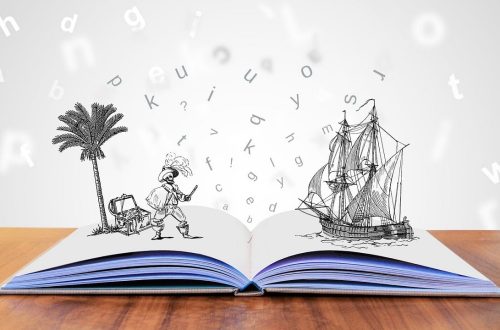
Environmental Protection and Sustainable Development: Recommended Books Addressing Environmental Issues
As the world grapples with pressing environmental challenges, literature has emerged as a powerful tool for raising awareness and inspiring action. Books focusing on environmental protection and sustainable development not only inform readers about the issues at hand but also provide insights into potential solutions. This article highlights some of the most impactful books published in 2024 that address these critical topics, exploring their themes, contexts, and the stories that resonate with readers.
The Importance of Environmental Literature
Environmental literature plays a crucial role in shaping public understanding of ecological issues. It serves as a medium through which complex scientific concepts are made accessible to a broader audience, fostering empathy and encouraging proactive behavior. Through compelling narratives, authors can illustrate the interconnectedness of human activities and the natural world, urging readers to consider their role in promoting sustainability.
Recommended Books on Environmental Issues
1. “The Conceivable Future: Planning Families and Taking Action in the Age of Climate Change” by Meghan Elizabeth Kallman and Josephine Ferorelli
This thought-provoking book addresses the emotional, social, and political implications of raising families in a world increasingly affected by climate change. Kallman and Ferorelli draw on extensive research and interviews with various stakeholders, including climate activists and food justice advocates. Their work encourages readers to reflect on the complexities of family planning amidst environmental uncertainty, making it a vital read for those grappling with these pressing dilemmas .
2. “Crossings: How Road Ecology Is Shaping the Future of Our Planet” by Ben Goldfarb
In “Crossings,” Goldfarb explores the often-overlooked impact of roads on wildlife and ecosystems. Through engaging storytelling, he reveals how highways disrupt animal migration patterns and contribute to biodiversity loss. This book not only raises awareness about road ecology but also advocates for innovative solutions like wildlife corridors that can mitigate these effects. It’s an essential read for anyone interested in conservation efforts and infrastructure planning .
3. “Sea Change: An Atlas of Islands in a Rising Ocean” by Christina Gerhardt
Gerhardt’s “Sea Change” combines stunning geological surveys with personal narratives from communities facing the existential threat of rising sea levels. Through essays and maps, she highlights the resilience of island communities while emphasizing the urgent need for global action against climate change. This book serves as both a wake-up call and a celebration of human ingenuity in the face of adversity .
4. “The Three Ages of Water: Prehistoric Past, Imperiled Present, and a Hope for the Future” by Peter Gleick
Gleick’s comprehensive exploration of water issues spans from ancient civilizations to contemporary challenges like pollution and climate change. He emphasizes water’s critical role in sustaining life while proposing innovative strategies for conservation and management. This book is particularly relevant as water scarcity becomes an increasingly pressing global concern, making it a must-read for environmentalists and policymakers alike .
5. “What If We Get It Right? Visions of Climate Futures” edited by Ayana Elizabeth Johnson
This inspirational anthology features contributions from over thirty experts who share their visions for a sustainable future. The essays cover a wide range of topics, from renewable energy to community resilience, providing readers with actionable insights into how they can contribute to positive change. Johnson’s compilation is not only informative but also empowering, encouraging readers to envision a hopeful future despite daunting challenges .
The Cultural Context of Environmental Literature
Understanding the cultural contexts behind these works enhances their impact. For instance, Kallman and Ferorelli’s exploration of family planning in relation to climate change reflects broader societal anxieties about future generations’ wellbeing. Similarly, Goldfarb’s focus on road ecology addresses urgent questions about infrastructure development in light of environmental sustainability.These books also highlight diverse voices in the environmental movement, showcasing perspectives from various communities affected by ecological degradation. By amplifying these narratives, authors foster greater empathy among readers and encourage collective action toward sustainability.

Conclusion: The Call to Action
As we navigate an era marked by environmental crises, literature serves as a beacon of hope and knowledge. The recommended books highlighted here not only inform but also inspire readers to engage with pressing ecological issues actively. They remind us that while challenges may seem insurmountable, informed individuals can drive meaningful change within their communities.For those looking to deepen their understanding of environmental protection and sustainable development, these titles offer valuable insights into both the problems we face and the solutions that lie ahead. Embrace this opportunity to learn from these voices—each page turned is a step toward fostering a more sustainable future for our planet.




